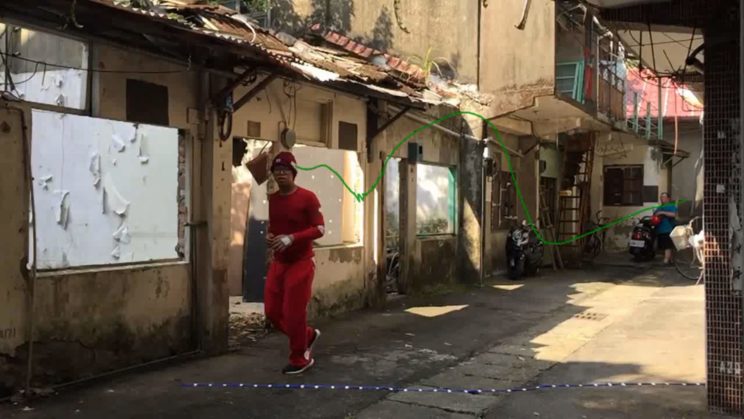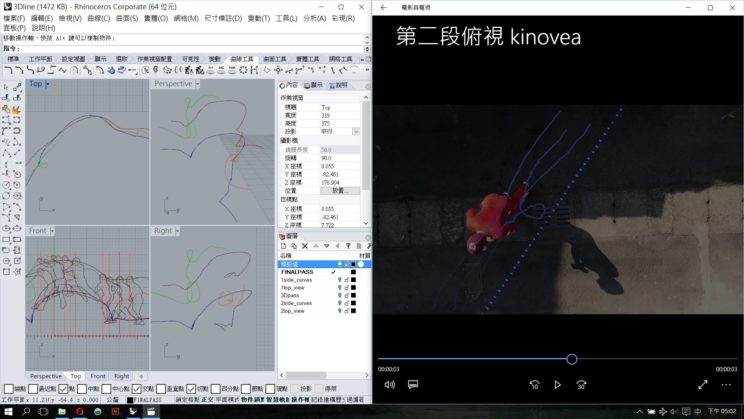How do we share the traces of an ephemeral experience in space? How do we represent past actions in order to share them with those who come after us? In creating relationships between each other, how can we bridge the gap of time and presence?
Popping is a form of street dance that mirrors facets of the digital age. Often incorporating sudden stops and starts of movement throughout the body, popping requires a nearly ‘digital’ control of one’s body, with the ability to isolate specific muscles and engage and disengage them extremely quickly. This kind of parsing of movement, reminiscent of stop-motion animation or glitching when electronic equipment goes haywire, is a fascinating translation into the physical body of our own inclinations to break down, or dissect the world around us.
A simple lunch, coffee and tea will be provided to all workshop participants.
Human behaviour, body movements and urban spaces have a rich and complex interdependence. The ways in which one configures the other are a subtle craft. In classic, as well as modern, designs this relationship was static, sometimes reflected in proportion and scale. The digital domain is well suited to work with more dynamic processes and allows us to more easily incorporate movement in our studies of form. With digital tools we can for example capture, visualize and simulate the motions of individuals as well as groups in a given space. Existing interfaces however do a poor job at allowing us to interact with the digital domain using our full bodies.
In this one-day workshop we propose a set of basic techniques based on computer vision and simple computational agents to produce designs that emerge from the complex interactions between body movement and computational processes. Using just a webcam and software that can be downloaded for free, we will sketch out digital forms using the entirety of our bodies in physical space.
We will use a 4x4m space to create a graphic work of the same size designed entirely through this trip from the physical to the digital and back.
Workshop
Date
December 1
Time
10:30 – 12:00 – Popping workshop with Chunks Ho
12:00 – 13:00 – Lunch
13:00 – 18:30 – Workshop: Form in motion
Venue
Quartair
Module
MBF x DEZACT
Workshop
BIOS

Jeroen van Ameijde (UK/NL) has been involved with academic activities at the Delft University of Technology, University of Pennsylvania, the AA and many other institutions in various capacities for more than ten years. His current research covers digital design, innovative construction technologies and contemporary urbanism. Summarised under the term ‘generative design’, he investigates new methodologies to incorporate detailed information and simulations of the multiple functionalities of possible design solutions. His research considers the contemporary city as a complex system of interrelated networks of material, social and cultural exchange, using the analogy to natural ecosystems to understand the relationships between physical environments and the enabling of many interactions at different scales and periods of time.

Luis Rodil-Fernández (NL/ES) is an artist, researcher, teacher and hacker. His work is concerned with the impact that technologies have on cognition and the human body with particular emphasis in movement and embodied interfaces. Through performances, installations and social games, his work proposes a critical approach to human-computer interactions rooted in movement. He is part of the Qualified Self project, an international research-creation program that aims at exploring the expressive potential of the new wave of biosensing technologies that are marketed under the moniker of Quantified Self. Luis is also co-founder of Algo Research Systems, a platform for researchers, curators and artists that investigate how the increasing automation of society alters the social order, creates mythical narratives around technologies and subjects the human to systematic automatisms. Luis studied Computer Science in Spain, and earned a BA in the Rietveld Academy in Amsterdam and a Masters in after studying Art Science at KABK in The Hague.


